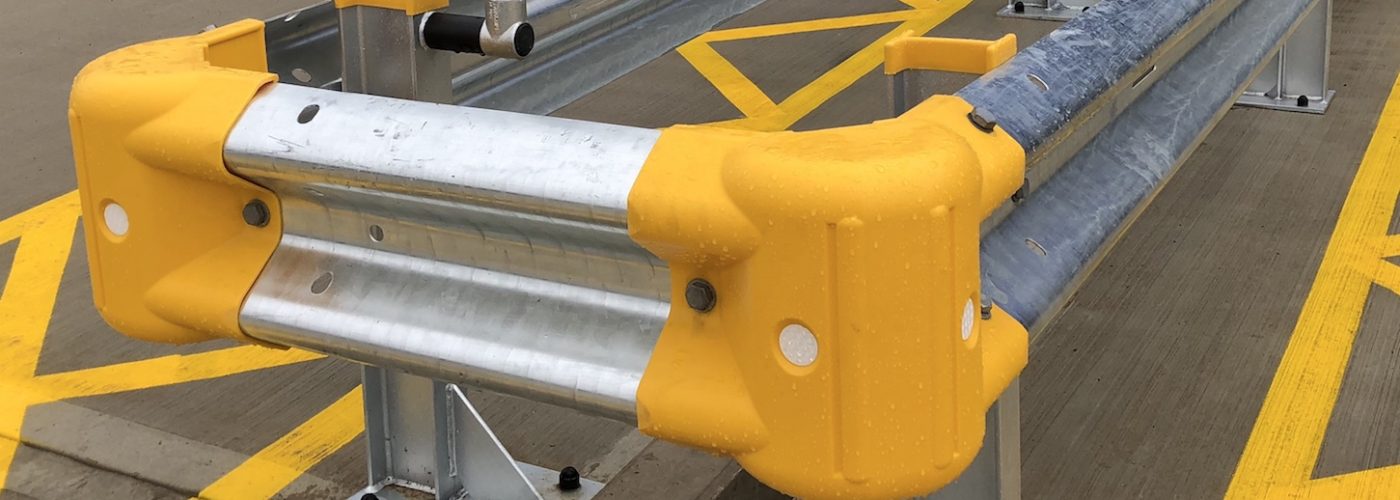Paul Roehricht, UK strategic account manager for Brandsafe, considers the critical role aftersales care and partnership plays in delivering the highest standards of safety and protection in the warehouse and logistics environment.
It should really go without saying that taking care of your customers once you have provided and installed products is best practice and the number one priority for any supplier. But too often in the scramble to deliver and look for new customers, it can be to easy to fail to follow through or appreciate that active aftercare can be beneficial for business.
Indeed, aftersales care and support reflects a genuine insight into customer needs as well as an opportunity for a supplier to secure additional business in future: it’s been estimated that margins generated by post-sales activities can be several times higher than those of initial product sales.
Good customer service does not stop once a purchase has been made, installed and your team has left the building. It’s only right that customers investing significant sums in safety and impact protection systems – indeed, any products – deserve the highest quality service, fast and effective resolution of problems or queries, as well as a touch of added value.
Understanding demand and managing the supply chain efficiently to secure product stock levels, supported by the deployment to customer sites of skilled, well resourced service teams, who understand the nuances and critical issues on the ground when it comes to onsite installation of systems and products, are key ingredients in a recipe for getting things right first time, every time. For example, if you cannot supply customers with the right part or product when they need it, and then install properly, they will go elsewhere.
Positive experience
Customers will be far more satisfied if they see your demonstrable focus on service and aftercare support, too. They’re more likely to purchase from you in the future if they have a positive experience of your company and project management capabilities – they may even recommend the brand to other potential customers as a result. For most companies, better service and aftersales support boosts revenue, delivers greater profitability and inevitably creates a powerful competitive advantage for the brand. Simply put, it’s good business.
Undoubtedly, the current pandemic is re-shaping the way many organisations conduct business. And this can be reflected in the role partnership plays in areas such as project management – and how sector suppliers such as Brandsafe go the extra mile.
Suppliers and customers who adopt a partnership approach can see rewards and reap significant benefits; particularly in the warehouse and logistics industry, which has been prone to accusations of unwillingness to share best practice and engage collaboratively on safety matters to drive wholesale improvements for the benefit of all sector operators.
Supply chain collaboration has a lot to offer. Relying on your supply partner to effectively project manage critical installations, for example, can reduce costs while improving quality and service levels. As we see online sales surge as a result of the pandemic seemingly without end, many retailers and distributors are peddling fast to re-organise and invest to either upgrade or redevelop existing warehouse infrastructures, or build new multi-complexes and international distribution hubs to accommodate strategic growth and expansion.
Operators may be rightly concerned about investing at a time when managing the bottom line is crucial but, with so much current change in consumer behaviour and purchasing decisions, there is no time for businesses to rest on their laurels.
Indeed, online sales in 2020 are expected to grow 19% year-on-year, up from pre-pandemic estimates of 11%, rising from a total of £66bn in 2019 to almost £80bn this year. Some forecasters suggest UK e-commerce will grow in value by as much as £5.3bn by the end of the year. Supermarket supply chains are also seeing big surges in demand, placing additional pressure on their distribution and supply chain infrastructure.
Partnership delivers
Skilled labour, which should be utilised effectively, is a resource in short supply, whose use must be effectively deployed. Many businesses in the warehouse and logistics sector might not be able attract or retain all the skills they require to support their capital investment and redevelopment plans, or may need these skills on a more flexible basis. Working in partnership with your supplier, who will have the requisite experience and expertise in place and available for use, will add even more supply chain value and allow people to benefit from skilled resources.
Innovative approaches can be shared throughout our sector, opening up advantages and delivering benefits for all. Partnership can make things a lot easier, quicker and cheaper, helping to support your health and safety commitments as you move into new geographical areas, expand operations or enter markets to access new customers and opportunities.
It will unquestionably facilitate new dynamics in the supplier/customer relationship, paving the way to mutually beneficial commercial and operational advantages. So in a sector that constantly evolves to meet the ebb and flow of changing consumer tastes and faces challenges around keeping people safe and secure while maximising productivity, surely there’s no better time to explore partnership with your suppliers and the role it plays in delivering the highest standards of protection? More at www.brandsafeprotection.com





